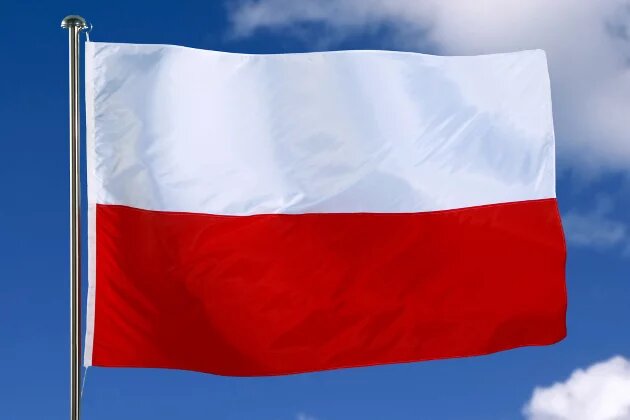

Gender policy, politics and resources in Poland
Legal situation:
- Equal opportunities law
- Facts
- Expert opinion
- Measures required
- Anti-discrimination law
- Laws on quotas, in particular in the political and economic sectors
- Further laws/legal provisions and government programmes
- Current political discourse
Protagonists:
- Women’s NGOs
- Parties, organisations within civil society
- Government, Ministries
- Female members of government
- Other gender protagonists
- Individual Protagonists
Academia:
Short description and evaluation
Two years after entering office in November 2007, the ruling coalition of the Civic Platform (Platforma Obywatelska – PO) and the Polish People’s Party (Polskie Stronnictwo Ludowe – PSL) is firmly established. All opinion polls to date indicate that voters do not want a change of power.
Official equal opportunities policy is no longer in its initial stages and is manoeuvring between the demands of the Polish women’s movement and the conservative forces within the state and the Church. At the same time, this situation does not mean that the ‘Polish woman’ should give up; rather, it presents the challenge to achieve professional success whilst also having family and children. This image is promoted by more ‘intellectual’ women’s magazines (e.g. Twój Styl and Zwierciadlo) and other media forms.
It has been years since any government has dared to attempt an amendment of the laws on abortion. In Poland, the right of access to abortion is closely linked to emancipation and equal opportunities for women. The inclusion of a ban on abortion and/or the rights of unborn children in the Polish constitution was, however, rejected. This outcome was due not least to a campaign by female members of parliament (MPs) and the female partners of male MPs.
The experience of Polish women since the collapse of communism in 1989 provides exemplary confirmation of this necessity for new EUC member states. Contempt for women’s legal rights on the part of government bodies and lack of interest among ruling parties in the public opinion of women on women’s issues are not uncommon in eastern European countries. The treatment meted out by Poland’s governments to the Office of Government Plenipotentiary for Equal Status of Women and Men is an example of the latter. It was abolished by the Kaczynski government in 2006; on 17 March 2008, Prime Minister Tusk reinstated the government plenipotentiary for equal status to office, though without assigning clear competences. MP Elzbieta Radziszewska currently holds the position. Both actions took place without any consultation whatsoever with women’s organisations.
Some government activities also appear to be of an alibi nature, such as the case of the two-volume publication compiled by order of the Ministry of Labour and Social Policy in 2006. Entitled Krajowy System Monitorowania Równego Traktowania Kobiet i Mezczyzn (National Monitoring System for Equal Treatment of Women and Men), it suggests the existence of a monitoring system. Only insiders know that these volumes exist and that they can be obtained free of charge. The report provides data that could be useful in the daily work of state administrative bodies and non-governmental organisations (NGOs). It shows, among other things, that women’s activities in all areas of society are increasing, whereas those of men in the area of family life are on the decline. Thus, the traditional family model with a double burden placed on women remains dominant.
Women are affected far more by turns of the political cycle than are men, because the laws passed that directly pertain to them are changed by every new government. Maintenance payments, maternity leave and many other issues are continually subject to revision, making employers reluctant to employ women. No one wants to discuss the proposal that paternity leave should be made obligatory, although this solution would help both women of child-bearing age and older women, since the competitiveness of older men could be limited by their potential to become fathers.
Feminist discourse in transformation-era Poland has become so differentiated that it is possible to talk about women but no longer about one single female image. While it is true that since the collapse of communism there have been efforts to create a feminine ideal, a homogenous female image in family policy – for instance in accordance with the traditional construct of ‘Mother Poland’ – this image is increasingly disintegrating into several different categories as a result of the pluralisation process.
In addition to ‘Mother Poland’, there is her counterpart, the emancipated businesswoman; in addition to the ‘gastronomic mother’, there is the career woman as politician or academic; and in addition to the chaste woman, there is the feminist or witch, depending on which newspaper you read. How women are assigned to categories tends to depend more on political options and not on the lifestyles of the women themselves. The ‘women’s issue’, in contrast, continues to be current in Poland because equal opportunities for women and men has not been a particularly high priority of governments since 1989, irrespective of whether they defined themselves as being left- or right-wing. An indicator of a certain degree of arbitrariness with which this set of problems is treated politically is the fact that there is still no equal opportunities law.
Legal situation
Equal opportunities law
In 1997 the text of the constitution was altered to favour the literal equality of men and women. Equal opportunities laws and the liberalisation of abortion laws were, to some extent, forfeited to persuade the Catholic Church to promote Poland’s accession to the European Union (EU) in rural areas. The majority of Polish legislation complies with all required EU guidelines on equal opportunities. There is, however, still no general professional classification for the calculation of salaries, making it impossible to compare various jobs with one another.
- Constitution of the Republic of Poland (Konstytucja Rzeczypospolitej Polskiej) of 2 June 1997
The constitution guarantees the equality of citizens with regard to the dispensation of justice and human and civil rights. - Labour law (Kodeks pracy)
Labour law ensures equal treatment when filling vacancies and includes a ban on discrimination on the basis of various preconditions. - National Programme to Combat Racist, Xenophobic Discrimination and Non-Tolerance (Krajowy Program Przeciwdzialania Dyskryminacji Rasowej, Ksenofobii i Zwiazanej z Nimi Nietolerancji), 2004–2009
Furthermore, there are numerous laws and regulations aimed at combating discrimination on the labour market or by institutions and authorities. None of them, however, mentions women as a disadvantaged group. - National Programme in Aid of Women’s Rights (Krajowy Program Dzialan na rzecz Kobiet)
This programme resulted from Poland’s international obligations to the Beijing Women’s Conference.
According to this report, discrimination against Polish women is particularly rife in politics and business. They earn 28% less than men with the same training and experience, and generally lose out to their male colleagues when it comes to promotions. With regard to Polish politics, the World Economic Forum confirms that the situation concerning women’s equality is worse than ever; in some cases women are not even taken seriously.
Neither a comprehensive gender equality strategy nor a comprehensive gender mainstreaming strategy has been formulated in Poland. There are no specific programmes aimed at encouraging men to take on a greater role in family life, at altering attitudes towards responsibilities within the family, or at fostering a more equal division of labour between parents. There are also no specific programmes to promote flexible employment structures or programmes focusing on the problem of gender equality in social protection systems.
Measures relating to the equal treatment of women and men in labour law must be improved. The government should extend the institutionalisation of gender framework conditions by establishing an anti-discrimination bureau with near judicial authority to fight cases of discrimination. The government should make systematic efforts to increase awareness of gender and discrimination in society at large.
March 2010
The European Commission is dispatching final warnings to Austria, Belgium and Poland – the so-called reasoned statement (the final stage of the infringement procedure before referring a case to the European Court of Justice) – because these countries have failed to communicate national legislation that aims to harmonise the EU directive on equal treatment of men and women (Directive 2006/54/EC). At the same time, the Commission closed the infringement proceeding against Estonia after the country notified the Commission of its legislation transposing the directive.
Poland has communicated several measures to implement the directive; however, because not all of the measures had been completed, the notification cannot be viewed as complete.
Since the collapse of communism in 1989, key laws in the fields of labour and social law have been amended or passed within the scope of harmonisation with EU legislation and have also strengthened women’s rights. In 2003, labour law was reformed, including a ban on discrimination on the basis of gender. There is a lack, however, of positive measures to transform the demand into reality. There is no specific, separate anti-discrimination law.
Laws on quotas, in particular in the political and economic sectors
In 2001 the Unia Pracy (UP; Labour Union), Sojusz Lewicy Demokratycznej (SLD; Democratic Left Alliance) and Platforma Obywatelska (PO; Civic Platform) political parties introduced a 30% quota for women on their party tickets. This was primarily due to a cross-party electoral coalition.
On 31st of January 2011 Bronislaw Komorowski (president of Poland) signed the resolution to introduce a quota for electoral lists.: 35% of availabe places had to be reserved for women and the electoral list had to change constantly. On his election to president Bronislaw Komorowski promised to introduce quotas for all electoral lists if the parliament would ratify such quotas.
To the women's congress this was only a minor – if welcomed – success. Especially in the areas of science and culture women rather seldom occupy executive positions. The third women's congress is taking place 17 – 18 of September 2011 with an international participation (Kongres Kobiet, Polish).
Source: Polityka, 05.02.2011: Odpięty suwak - Archiwum tygodnika POLITYKA (Polish)
Further laws/legal provisions and government programmes
A Government Programme for Equality – rowny status – was initiated; it is not, however, being pursued (the home page has been deactivated).
- Campaign to combat forced prostitution (Poland is a country of origin, transit and consumption of forced prostitution)
- Participation of women in business
- The right to abortion and the concept of homosexuality as a life plan or in a legalised partnership are not issues at the institutional level.
- ‘Equality Parades’, or Euro Pride in 2010, are an ongoing cause of heated debate. Counterdemonstrations are certain and are often carried out in a very aggressive, tasteless manner.
- Since 2013 a fierce debate on the term Gender and the attached or assumed policies has set in within the Polish public. In the course of that debate Gender has become a rather negatively connoted word. Most notably the Polish Catholic Church and conservative newspapers have condemned it post-marxist turning the world upside down. It has, however, also been discussed differently in science and by NGOs active in gender equality.
Protagonists
Women’s NGOs
Constant amendments to regulations also cause turbulence within women’s NGOs because the latter must continually refocus their key areas of work on new problem areas. Financing of the NGOs is also affected by this constant adjustment. Other than the 1% which every Polish person can write off against tax as a donation to a specific organisation, there is no safeguard for the activities of these NGOs. As a general rule, they must thus seek support from abroad, often making them vulnerable to the suspicion that they are acting on behalf of foreign cultures. And this in turn closes the circle with which the official Poland likes to justify the inadequacies of its gender policies at international forums, using the argument of cultural singularity.
State support of campaigns to stop violence against women and assistance to the women affected amounted to a mere 40,000 zlotys (about 10,000 euros) in 2007. This meagre sum is an indication of neglect of women’s issues and is certainly not a cultural peculiarity of Poland. The political participation of women is discussed only during electoral campaigns; even up to now proposals have not gone beyond a 30% quota on the electoral lists of some parties.
The list of gender and women’s policy issues still to be addressed in Poland – where the political rhetoric is family-oriented – is long. Women are viewed solely as an integral part of a traditionally structured family, and family policy focuses above all on pregnant women. After the birth of a child they receive 1,000 zlotys (about 250 euros) as ‘childbirth money’ (Becikowe) irrespective of their financial situation; from there on state assistance for young mothers is as good as over. Child benefits, paid to large families, are very low and represent symbolic rather than real assistance. On the labour market, the issue of childcare has hardly been addressed. State pension insurance has a gender bias, placing women at a disadvantage because they retire earlier and thus do not work as long as men.
So-called women’s issues are thus still current. Communications between the government and feminist NGOs (about 300 in Poland overall), which have been campaigning for years for gender equality in Poland, have to all intents and purposes been broken off. The experience of Polish women is that the democratic idea of civil society as an exchange of information and cooperation between all political structures can be put into practice, but only as long as the state power has the political will for this to occur.
Parties, organisations within civil society
Numerous NGOs in Poland focus on equal opportunities, anti-discrimination and feminist issues. According to information from the Women’s Information Centre, there are some 300 women’s organisations in Poland. NGOs carry out the lion’s share of active anti-discrimination work in Poland. The small organisations also focus on political activities concerning women and girls. A very well-sorted list of corresponding links can be found on the Feminoteka website (see below).
Networt of East-West-Women (Polish, some parts English):
One of the most comprehensive websites on equal opportunities policies and current political tendencies and trends in Poland. This site provides numerous references (also to Internet sites in other countries), articles, and information on actions and campaigns. It is continuously updated.
Silesian Gender Zone (Polish):
This website gives users the opportunity to contact the remaining equal opportunities officers in the voivodeship administrative districts. It also includes numerous articles on gender mainstreaming (GM) and its instruments; it also includes the national and EU legislative basis and a glossary. The website is a project run by the Feminoteka foundation.
Konsola (Polish):
Konsola is a ‘“women’s association”’ (the meaning of its name) which has existed since 1997 and was (officially established in 1999). It covers issues such as women’s access to the labour market, taking the position that ‘women’s rights are human rights’. It propagates feminist thought and supports the establishment and development of Gender Studies. It publicises these issues in seminars and at events. Konsola has initiated and realised numerous projects.
Oska (Polish):
The website of the ‘grande dame’ of Polish women’s organisations, which has, however, been revised in the last year. The Polish women’s NGO scene is deeply divided, which is also reflected here in the changes in organisational and content changes. The website is, however, still a treasure trove, with a comprehensive collection of links to other organisations; academic articles; political reports and a listing of addresses for further research.
Efka (Polish, some parts English):
Women’s Foundation. This feminist organisation was developed, among others, with the assistance of the Heinrich-Böll-Stiftung (HBS), among others. It publishes books through its own publishing house and its own magazine, “Zadra”.
Feminoteka (Polish, some parts English):
Comprehensive site with numerous articles, including an article by Michal Hasiow: “Auch ich habe abgetrieben’ ("I too had an abortion"). Feminoteka also publishes and sells books.
Partia Kobiet (women's party, Polish):
An initiative of famous women which resulted in the setting up of a political party. They are very active and, thanks to a good PR public relations strategy, also well -known.
They took part in the 2007 parliamentary elections and received almost 3% of votes in some electoral districts. The party is, however, at the very conservative end of the political spectrum. Although it does represent women who would otherwise not call themselves feminist or become involved in this field, it discourages the membership of lesbians.
Women For Women (Polish):
Comprehensive website with discussion forums, articles, news, etc., with a focus on homosexuality.
Democratic Women’s Union (Polish):
This organisation has been active for 20 years and is an established member of women’s networks.
There has been some progress on the government side, particularly in its communications with the Polish public. Every ministry home page at the least offers information or statements on one of the following keywords: gender, gender mainstreaming, kobieta (woman) or rowne szanse (equal opportunities).
Department For Women, Family And Counteracting Discrimination :
The official website of the Department for Women, Family and Counteracting Discrimination, which is located within the Ministry of Labour and Social Policy. The home page is very informative, but available in Polish only. It is, however, very informative. It provides information on the legislative situation and on legal loopholes, and covers issues on topics such as equal opportunities and gender policies.
The current government has four female ministers (next elections are in 2011). In autumn 2007, a meeting of all ministers took place to discuss equal opportunities of the sexes and to exchange information on programmes and examples of good practice.
- Elzbieta Bienkowska (independent) – Minister of Regional Development
In 2009 the ministry published a comprehensive brochure under the heading entitled ‘“Women are the future”’ (‘Kobiety w zarzadzaniu i czynniki ich sukcesów’). The ministry’s homepage includes a number of articles on gender mainstreaming with regard to regional development. - Jolanta Fedak (PSL) – Minister of Labour and Social Policy:
The ministry follows EU directives and provides various activities and papers on equal opportunities at work. The minister herself took part in the Polish Women’s Congress; as a matter of course – the keynote issues at the 2010 Congress were violence in the home and at the workplace; women over 50 on the labour market and the combining of family and work for both parents. The ministry’s home page includes its own link for the latest topics and provides a thematic overview of information. - Katarzyna Hall (independent) – Minister of National Education :
The ministry has no activities of its own in the field of gender mainstreaming or programmes for girls. The only thing it publicises is the initiative to further girls in higher education – similar to the ‘girls day’ in Germany (there is, however, no prominent information on the programme on the ministry’s home page). - Ewa Kopacz (PO) – Minister of Health:
The ministry has activities and information for women with children. , i.e. mothers. - Barbara Kudrycka (PO) – Minister of Science and Higher Education :
The Ministry of Science Higher Education supervises a programme entitled 'Women in Science’, which includes organising conferences in the regions. In addition to this, the ministry cooperates with 'Elle' magazine to bring young girls into MINT studies and supports them through the scholarship programme of the L’Oreal foundation.
'Homoseksualizm : Jestem gejem, jestem lesbijka! Poznaj nas!' (Polish) und Campaign Against Homophobia (Polishund englisch)
Forum (Yahoo Groups):
In this forum founded by feminists, men and women can discuss feminism and equal opportunities, non-violence, and other political issues. The objective is to fight against gender stereotypes and to recognise and understand own forms of sexism. The forum has been rather quiet for some time now – the founding members are occupied with other activities in the gender and queer scenes.
- Bozena Choluj (E-Mail: b.choluj@uw.edu.pl), co-founded the University of Warsaw’s Gender Studies Department in 1995.
- Anna Kaminska (E-Mail: kaminska2005@gmail.com) is an active feminist and founder of the Karat Coalition; she also founded the cross-party women’s initiative prior to the parliamentary elections in 2001.
Academia
Universities
Almost all large universities now offer courses in Gender Studies courses. A very comprehensive website with current and good reliable information is: uniGender. The Gender Studies faculty of the University of Warsaw also has a very good, informative website.
Description of the status of source material:
The status of source material varies. There are many Internet sites in Polish, operated and run by the NGOs scene mentioned above. Few of these websites are in English. Government websites are also limited to Polish versions and are not rich sources on the topic of equal opportunities.
Citation of other interesting sources:
Internet addresses were provided directly in context.
Federacja na rzecz Kobiet i Planowania Rodziny (Polish Federation for Women and Family Planning)
at first glance the site appears to be fairly conservative in terms of content, however, it provides a good overview of current developments and seems to be informative and advisory offering expert opinions (e.g. including critical views on the restrictive policies regarding pregnancy terminations) – in Polish and English.
Feministyczno-Genderowo-Queerowa Mozaika Myslowa
feminist-gender-queer kaleidoscope of ideas (in Polish only) – is a forum for current political discussions and events.
Kongres Kobiet (Polish)
The “Women’s Congress” association of the initiative ‘Women for Poland, Poland for Women’. Among other things the association set up an initiative in 2009 which campaigns for gender parity in the Polish parliament. Politicians support its demands in very different ways – they range from at least a 35% share of women/men share via electoral list positions and quotas to the demand for 50% of places in political parties; on electoral lists etc. In July 2010, two of the proposals were again brought before a sub-committee.
Strona glówna (Polish)
A comprehensive website (in Polish only) dealing with politics, facts and the legislative situation. This site provides an overview of equal opportunities policies in the EU and in Poland’s regions. There is also a ‘gender check’ for organisations and a ‘gender ABC’.
B. Choluj, Bozena, and /Claudia. Neusüß., ‘Geschlechtergleichstellung in Poland’ [Gender Equality in Poland], in : Implementation von Gender Mainstreaming. Bundeszentrale für politische Bildung. [Implementation of Gender Mainstreaming]
Malgorzata Fuszara, Malgorzata. ‘Unvollendete Demokratie’ [Unfinished Democracy], in: Hoecker/Fuchs, Handbuch Politische Partizipation von Frauen in Europa [Handbook of Political Participation of Women in Europe], eds. Beate Hoecker and Gesine Fuchs, Volume vol. 2II. Wiesbaden: VS Verlag für Sozialwissenschaften, Wiesbaden 2004.
Annette Jünemann, Annette, / and Carmen Clement (Eeds).: Die Gleichstellungspolitik der Europäischen Union, / The Policy of Gender Equality in the European Union., Nomos 2005, 180 pg., 36.00 euros, ISBN 3-8329-1107-3, Schriftenreihe des Arbeitskreises Europäische Union e.V. [Series of the European Union Working Group], Vvol. 52. Baden-Baden: Nomos, 2005.
‘Die Frauenfrage in der polnischen Politik’ [Women’s Issues in Polish Politics], in: Polenanalysen [Poland Analyses], no. 34 03.06.2008, (Polen-Analyses)
European Parliament - Directorate General for Internal Policies - Policy Department C: Citizen's rights and constitutional affairs - Gender Equality The policy on gender equality in Poland - Note (PDF, 21 pages, 747 KB), 2011
This study was conducted by Tanja Berger und Pamela Dorsch and comissioned by the Gunda Werner Institute of the Heinrich Böll Foundation in 2010.
All images, except marked otherwise Public Domain CC0

